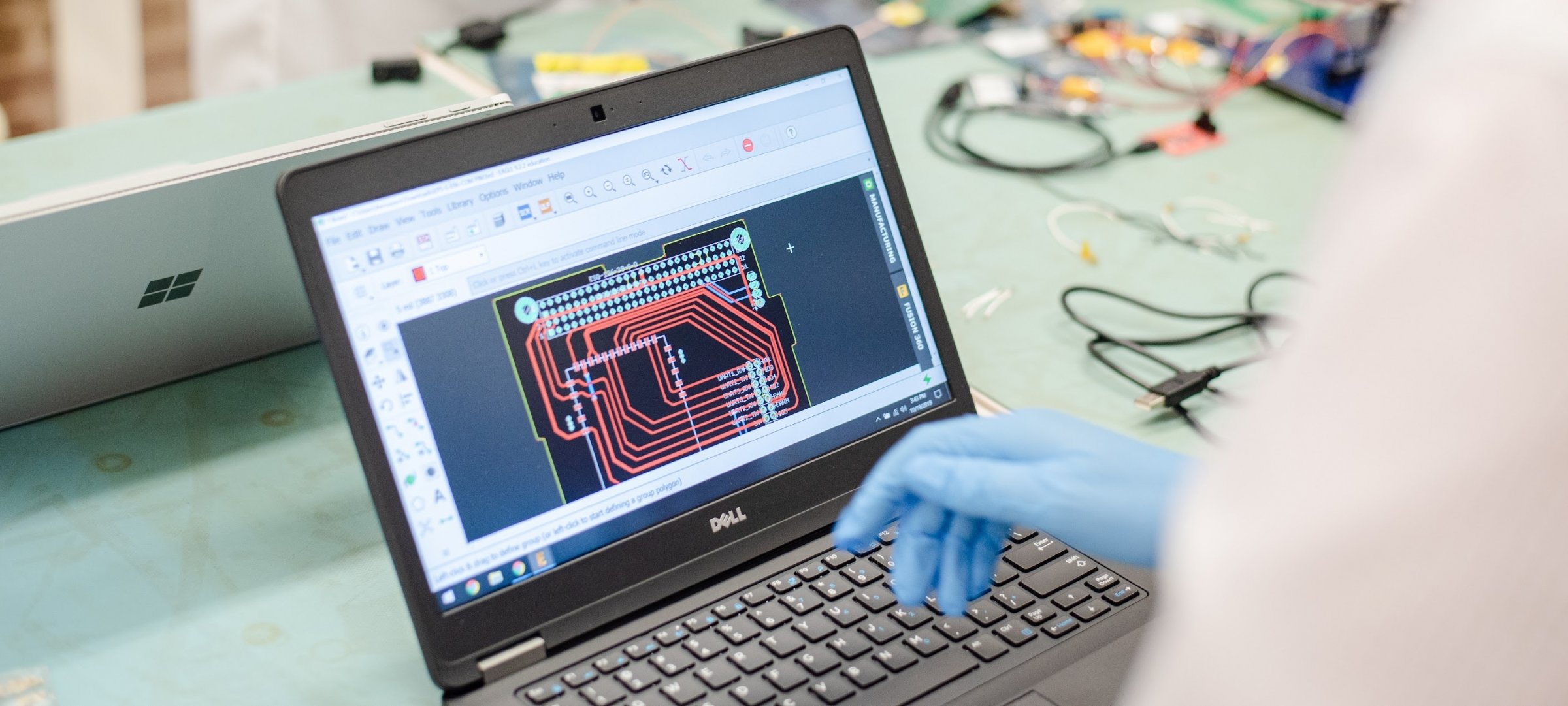Computer engineering is a growing field that integrates both the software and hardware sides of computer systems. Computer engineering at Michigan Tech bridges the gap, setting you up for a wide range of in-demand careers. Choose your future.
A bachelor's degree in computer engineering from Michigan Tech prepares you to become a uniquely qualified expert in both electrical engineering and computer science. Study the whole computer system by taking courses in computer system engineering, programming, mechanics, computer architecture, and more. Prepare for a career in any computer-related field, such as robotics, automation, artificial intelligence, cybersecurity, and more.
Request Information
Form loading . . .
As a Michigan Tech computer engineering student, you'll work closely with expert faculty members in a discovery-based learning environment with state-of-the-art equipment. Our labs follow a one-student-per-bench model, giving you space to become familiar with cutting-edge tools and build the skills you'll need as a computer engineer. Develop your own projects in the Plexus Innovation Lab, an electronics makerspace designed for student use.
Develop real solutions as a research assistant and gain hands-on experience in a project-based curriculum. Collaborate with your fellow engineers in the Department of Electrical and Computer Engineering's ITC Learning Center and find the academic path that best suits you with the help of our advisors.
No. 17
No. 14
Top 20
No. 13
What Will I Study?
As a computer engineering major at Michigan Tech, you'll build on a foundation of physics, mathematics, and engineering principles. Develop hands-on expertise working on real hardware and software projects. Put your computer engineering skills to the test in either an industry-sponsored Senior Design capstone project or collaborative Enterprise team. Expand your expertise with advanced coursework in the following areas:
- Computer Networks
- Internet of Things Applications and Design
- Network Security
- Software Processes and Management
- User Interface Design and Implementation
- Autonomous Systems
Tomorrow Needs Computer Engineers Who Bridge the Gap
Computer engineering is a hybrid of computer science and electrical engineering. It combines knowledge from both fields into a single discipline. The field of computer engineering continues to be driven by advances in areas such as artificial intelligence, embedded systems, supercomputing, and quantum computing. As technology and computing devices continue to evolve and become common in daily life, computer engineers will bridge the gap to build an efficient, reliable future.
Engineering Enterprise Concentration
You can pursue an Enterprise concentration by taking part in Michigan Tech's award-winning Enterprise Program. Work on real projects, with real clients, in an environment that’s more like a business than a classroom. Choose from more than 25 Enterprise teams on campus to invent products, provide services, and pioneer solutions.
All Enterprise teams are open to all majors, including computer engineering-focused teams such as Blue Marble Security, Wireless Communication, or Robotic Systems. Tackle real-world design projects for industry sponsors or take part in a national competition (or both). This concentration can add courses in business and entrepreneurship.
Be Career Ready
Graduate with a bachelor's degree in computer engineering from Michigan Tech. You will gain the versatility to work in numerous fields. Consult on movie special effects. Design nanotechnology for bionic implants. Many computer engineers choose jobs that use their hardware/software integration abilities. Design complete systems in automotive, aerospace, and many other industries.
Explore Career Opportunities for Computer Engineers:
- Hardware Engineer
- Design Engineer
- Validation Engineer
- Embedded Software Engineer
- Systems Engineer
- Firmware Engineer
What is Computer Engineering?
Computer engineers study the computer system in its entirety. They are comfortable working with both hardware and software. Computer engineers understand how the hardware and software interact with each other. They can test design trade-offs between the two. Computer engineers bridge the hardware/software divide. They can design, build, and program complete computer systems from scratch.
By contrast, a computer scientist focuses on the theory of a computer system. This includes software and programming. A computer engineer understands circuitry and hardware. They work on electronic aspects of the system, with less emphasis on software.
My Story: Carter Dugan, MTUengineer"I'm on a team working on a drone that can use a cell tower as a middle man when communicating with the user, something that gives drones a much larger range of control. It is a very interesting and ambitious project, and the time I have spent working on it with my incredibly intelligent teammates has been invaluable and has taught me a lot."



